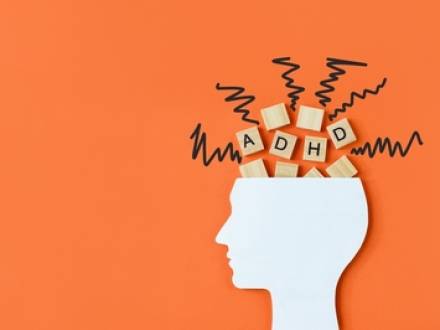Untreated ADHD Is a Problem in the Criminal Justice System
 Attention Deficit Hyperactivity Disorder (ADHD) is a mental disorder that more and more people have become aware of in recent decades. While this disorder is commonly thought of as an issue that affects children, its effects can persist into adulthood. Those who struggle with ADHD may have trouble maintaining employment, and they may turn to criminal activity, which can lead to arrests, convictions, and prison sentences. Unfortunately, a lack of treatment can often make things worse, and after being released, people with ADHD are more likely to reoffend.
Attention Deficit Hyperactivity Disorder (ADHD) is a mental disorder that more and more people have become aware of in recent decades. While this disorder is commonly thought of as an issue that affects children, its effects can persist into adulthood. Those who struggle with ADHD may have trouble maintaining employment, and they may turn to criminal activity, which can lead to arrests, convictions, and prison sentences. Unfortunately, a lack of treatment can often make things worse, and after being released, people with ADHD are more likely to reoffend.
For people who are facing criminal charges or prisoners who are looking to re-enter society after serving their sentences, it is important to make sure issues related to ADHD are addressed correctly. During a criminal case, an experienced criminal defense attorney can help demonstrate the ways mental health issues may have affected a person’s actions, arguing for leniency and ensuring that the defendant can receive the proper treatment. A skilled Hartford, CT criminal defense lawyer can advocate for the rights of prisoners, helping them get treatment for ADHD and making sure they will be able to live productive lives after being released.
How Can ADHD Affect Criminal Defendants and Prisoners?
ADHD is characterized by difficulty maintaining focus, excessive and inappropriate physical activity, and impulsive behavior. When it is not properly addressed, it will often cause children to struggle in school, starting them down the road toward delinquency. Inappropriate behavior may lead to penalties at school, and difficulty paying attention and completing assignments can cause children to fall behind. In some cases, this may lead children to drop out of school, and they might begin engaging in illegal behavior that could result in legal consequences.
Many of these issues continue to affect people with ADHD as adults. Problems with concentration and focus can make it difficult to maintain employment, and impulsive behavior could lead to violations of the law. People with ADHD may also struggle with drug or alcohol addiction, which could lead to criminal charges for drug possession or DUI. These issues make people with ADHD much more likely to be charged with and convicted of crimes.
Studies have shown that children with ADHD are three times more likely to be sentenced to jail than those who do not have ADHD. They are 50 percent more likely to be charged with offenses related to robbery as adults and 25 percent more likely to be charged with drug distribution. Even though ADHD only affects around 4 percent of the total population in the United States, around half of all adult prisoners and two-thirds of children in juvenile detention facilities have been diagnosed with this condition.
Even though the effects of ADHD are known, many prisoners are not provided with the proper treatment to help manage this condition. Because of this, they may engage in behavior in prison that can lead to penalties, such as acts of violence that could result in solitary confinement. They are also more likely to reoffend and be arrested again after they are released. Researchers have found that around half of prisoners with ADHD are rearrested within seven months of their release from prison, while prisoners without ADHD will usually go two years before being re-arrested.
These issues make it clear that treatment for prisoners with ADHD would be beneficial, but many prisons do not take steps to provide such treatment. While the Federal Bureau of Prisons has provided clinical guidelines encouraging the use of both psychotherapy and medication for prisoners with ADHD, these guidelines are not always followed. In many state prisons, the use of medication is discouraged due to concerns about drug abuse. In many cases, prisoners are forced to handle these issues themselves and come up with their own treatment plans. Criminal justice advocates are working to address these concerns and make sure prisons are focusing on treatment and rehabilitation that will help prisoners avoid criminal charges in the future.
Contact Our Connecticut Criminal Defense Attorneys
As ADHD continues to be a concern in many criminal cases, people who have been diagnosed with this disorder or who believe that they have mental health issues that need to be addressed can protect their rights by working with an experienced attorney. At Woolf & Ross Law Firm, LLC, our Hartford, CT criminal defense lawyers can make sure ADHD and other related issues are addressed correctly when defending against criminal charges, and we can also help clients obtain the treatment they need. To schedule a free consultation and get legal help with your case, contact us today at 860-290-8690.






